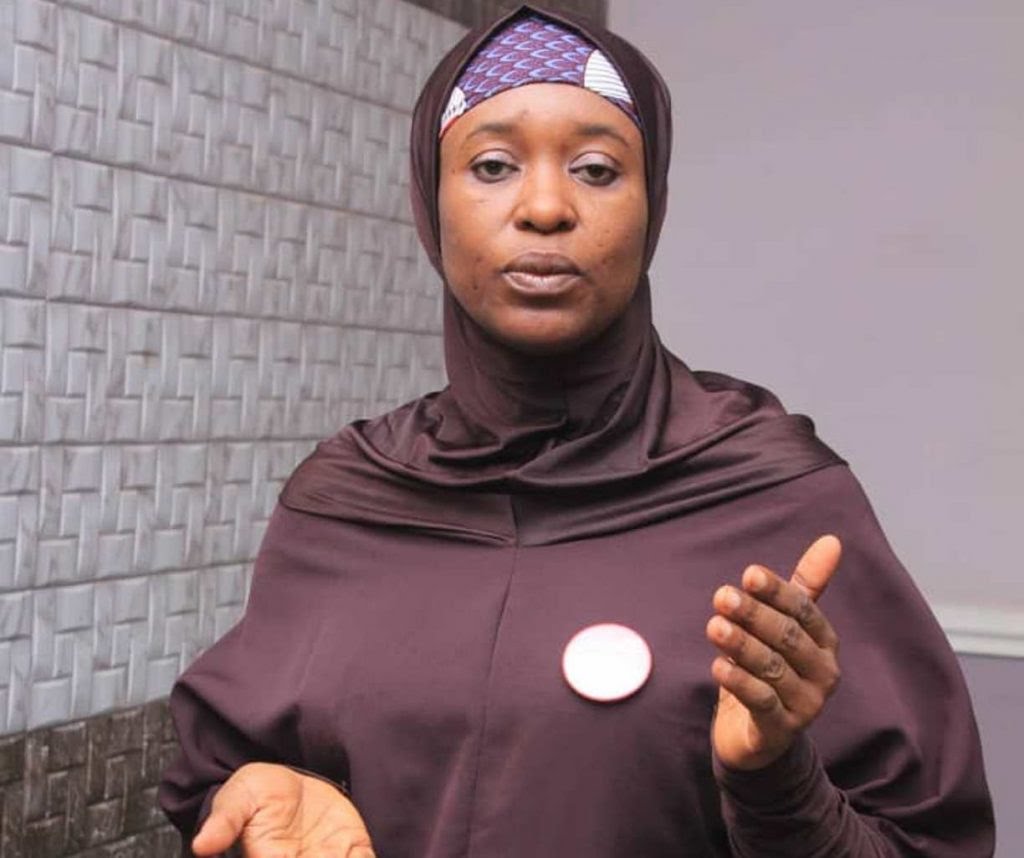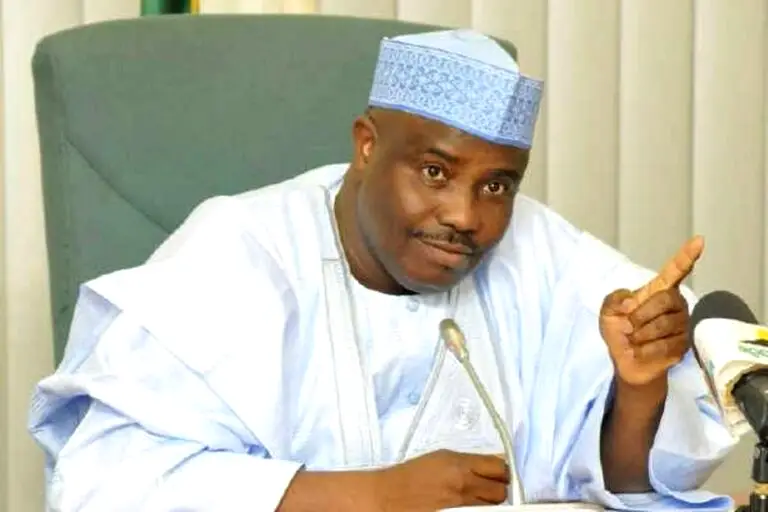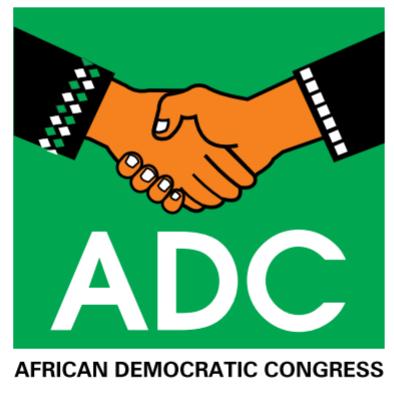[ad_1]
At the turn of the new year, the head of the International Monetary Fund (IMF), Kristalina Georgieva, warned that at least one-third of the global economy may slip into recession in 2023. JUSTICE NWAFOR looks at what this means for Nigerians, especially the 133 million who are already multidimensionally poor.
The International Monetary Fund (IMF) broke what seemed to be sad news just as the new year got underway. One in three nations will experience a recession in 2023, the managing director of the Fund, Kristalina Georgieva, warned.
On the CBS Sunday morning news program, Face the Nation, Georgieva predicted that the coming year would be “tougher than the year we leave behind.” “Why? Because the three big economies – the US, EU and China – are all slowing down simultaneously,” she said.
The IMF chief further explained that “We expect one-third of the world economy to be in recession. Even countries that are not in recession, it would feel like recession for hundreds of millions of people.”
She added, “For the next few months, it would be tough for China, and the impact on Chinese growth would be negative, the impact on the region would be negative, and the impact on global growth would be negative.”
She claims that because of its robust labour market, the US has a better chance of avoiding global contractions. “The US economy is remarkably resilient… (and) may avoid recession. We see the labour market remaining quite strong,” she said.
Recession and its possibilities in Nigeria
The term “recession” refers to a decline in a nation’s economic activity, which is typically gauged by GDP growth that is negative for two consecutive quarters. It is characterized by a decline in consumer spending, increased unemployment, decreased business profits, and decreased investment.
The IMF prediction shocked a lot of people in Nigeria because even though the economy wasn’t doing particularly well the year before, there wasn’t any negative growth either. The lesson to be learned from Georgieva’s claim is that not all nations are likely to enter a recession. Even so, millions of people in nations that are not experiencing a recession will suffer greatly due to the deep-cutting effects of the recession in some countries.
What are the chances that Nigeria will be one of the two-thirds of nations to experience a recession, though?
There are currently no credible indicators that Nigeria’s economy is headed toward recession. The country hasn’t experienced negative growth, despite the fact that GDP growth slowed to 2.3 per cent in the third quarter of last year from 3.1 per centand 3.5 per centin the first and second quarters of 2022, respectively.
Experts are concerned that Nigeria’s economy has slowed as a result of the nation’s mounting public debt and exchange rate crisis, in addition to recent global events.
The public debt of the nation was N44.6 trillion as of the third quarter of last year, according to the Debt Management Office (DMO). Given that experts have predicted that the debt profile will continue to rise, this is especially concerning. In September last year, the DMO provided an explanation for the high debt, stating that new borrowing by the Federal Government to partially finance the deficit in the 2022 Appropriations Act was a contributing factor. Similarly, the 2023 Appropriations Act will be partially financed by borrowing on the part of the federal government.
On this course, there are signs that the nation’s debt will probably increase. Dr. Muda Yusuf, CEO of the Center for the Promotion of Private Enterprise (CPPE), is one of those who holds this viewpoint. He predicts that this year, Nigeria’s debt load will total N70 trillion.
The deficit “will most likely be much bigger by year’s end because of the track record of revenue underperformance over the last couple of years,” according to Dr. Yusuf, a former director general of the Lagos Chamber of Commerce and Industry (LCCI).
“Given the trajectory of revenue performance, we are also likely to observe an acceleration of Central Bank of Nigeria (CBN) financing of the fiscal deficit. The public debt stock is currently at N42 trillion and is rising.”
He pointed out that there are a number of problems that need to be resolved in order for the country to achieve its goal of fiscal sustainability. He stated that given the current level of the world oil price, the performance of government-owned enterprises managing significant economic assets must be significantly improved in order to show the value of the assets at their disposal.
Since poor private sector performance would inevitably have an effect on non-oil tax revenues, he emphasized the urgent need for a solution to the foreign exchange policy regime.
Nigeria’s long romance with recession
Nigeria has experienced its fair share of love affairs with recession since gaining independence. This reporter’s examination of the nation’s economic history reveals eight recessions since independence. The first occurred in 1967, with a GDP growth rate of -15.74 per cent.
The second was in 1975 when the GDP declined by –5.23 per cent. Three years later, the country experienced a second recession as a result of a -5.76per centdecline in GDP. The following recession started in 1981 as the GPD expanded negatively by -13.13 percent. In 1983, it continued as the growth rate was abysmal -10.92 per cent. The next recession didn’t hit the nation until 1993, when the GDP actually shrank by -2.04 percent. Another, one hit the nation in 2016 at -1.62 percent, and the final one came in 2020 at -3.62 percent.
Recessions typically have a lot of negative effects. The first is unemployment. Companies may reduce hiring or lay off employees during a recession, which raises the unemployment rate. Poor people frequently lose their jobs first, and it may be more difficult for them to find new employment. The result would be a decrease in income. Poor people may see a decrease in their income during a recession even if they are able to keep their jobs due to a decline in the demand for their labour. Dr. Ganiyu Oladapo, an economist and the national coordinator of the Institute of Chartered Economists of Nigeria, said that this has even more profound effects.
Hard-hitting impacts
He claims that because of the high cost of production, “it is going to hit hard on unemployment because companies and businesses will retrench staff.” People will receive less money as a result, and even the little they do receive will be worth little. This would compound the already nose-diving value of the Naira. Because of the enormous value loss in the money, the seller of goods will sell fewer items, earn lower profits, and have more bills to pay. “Closure of businesses will lead to a high crime rate. Furthermore, given the already high crime rate, this will be disastrous.”
The interest rate will be high, as will the cost of producing goods and services, as well as the cost of living, he continued, adding that this will put a strain on both the government and the general public’s finances.
“Another significant impact is the rising level of poverty. The combination of increased unemployment and reduced income will lead to increased poverty, particularly for families with children or for elderly individuals living on fixed incomes. This will be particularly grave given that Nigeria is still the poverty capital of the world. “Those with fixed earnings/salaries will hardly earn more but will continue to spend more and as such will sink further into poverty,” Dr Oladapo said.
There is no universal access to healthcare in Nigeria. Additionally, the government’s recent funding of healthcare has been appalling. Government spending may be cut back during a recession, which could result in reductions in support for the healthcare system and other services that poor people depend on. As a result, the healthcare industry will probably suffer more, which will result in less people having access to healthcare and other services.
According to Dr. Oladapo, people’s inability to care for themselves due to low income will unavoidably result in mental health issues and increased demand for healthcare.
“A lot of people will likely experience insomnia and mental health problems. People will not be able to pay their bills and will easily get depressed. This will also lead to breakups in relationships given that people will not be able to meet their responsibilities.
“There are tendencies that there will be an increase in the cases of domestic violence: when fathers and husbands are unable to meet their responsibilities, there will be an overflow of emotions that would lead to frequent fights. And, cases of divorce will likely spike further.”
Nigeria already struggles to meet housing demand as the nation’s housing shortage grows. Therefore, housing insecurity will increase during a recession. There will be increased housing insecurity. Poor people may also struggle to pay rent leading to increased homelessness or evictions.
Additionally, housing costs will continue to rise, making it harder for people to afford their rent, according to Dr. Oladapo.
Even though the IMF upheld its three percent growth forecast for Nigeria for 2022 earlier this month and claimed that the economy had recovered from output losses incurred due to the COVID pandemic thanks to favorable oil prices and domestic consumption, Dr. Oladapo believes that this does not negate the recession warning that the nation should prepare for it. He is adamant that government spending should be reduced and more savings made.
ALSO READ FROM NIGERIAN TRIBUNE
[ad_2]







